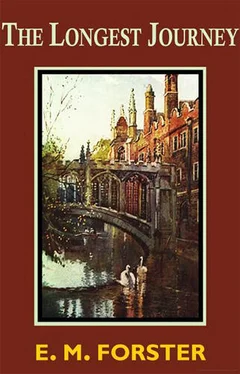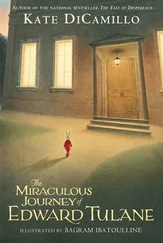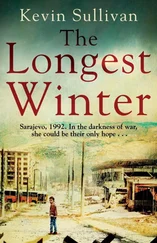Edward Forster - The Longest Journey
Здесь есть возможность читать онлайн «Edward Forster - The Longest Journey» весь текст электронной книги совершенно бесплатно (целиком полную версию без сокращений). В некоторых случаях можно слушать аудио, скачать через торрент в формате fb2 и присутствует краткое содержание. Жанр: Классическая проза, на английском языке. Описание произведения, (предисловие) а так же отзывы посетителей доступны на портале библиотеки ЛибКат.
- Название:The Longest Journey
- Автор:
- Жанр:
- Год:неизвестен
- ISBN:нет данных
- Рейтинг книги:5 / 5. Голосов: 1
-
Избранное:Добавить в избранное
- Отзывы:
-
Ваша оценка:
- 100
- 1
- 2
- 3
- 4
- 5
The Longest Journey: краткое содержание, описание и аннотация
Предлагаем к чтению аннотацию, описание, краткое содержание или предисловие (зависит от того, что написал сам автор книги «The Longest Journey»). Если вы не нашли необходимую информацию о книге — напишите в комментариях, мы постараемся отыскать её.
The Longest Journey — читать онлайн бесплатно полную книгу (весь текст) целиком
Ниже представлен текст книги, разбитый по страницам. Система сохранения места последней прочитанной страницы, позволяет с удобством читать онлайн бесплатно книгу «The Longest Journey», без необходимости каждый раз заново искать на чём Вы остановились. Поставьте закладку, и сможете в любой момент перейти на страницу, на которой закончили чтение.
Интервал:
Закладка:
"I shall stop at the Thompsons' now," said the disappointed reveller. "Prayers."
Rickie did not press his triumph, but it was a happy moment, partly because of the triumph, partly because he was sure that his brother must care for him. Stephen was too selfish to give up any pleasure without grave reasons. He was certain that he had been right to disentangle himself from Sawston, and to ignore the threats and tears that still tempted him to return. Here there was real work for him to do. Moreover, though he sought no reward, it had come. His health was better, his brain sound, his life washed clean, not by the waters of sentiment, but by the efforts of a fellow-man. Stephen was man first, brother afterwards. Herein lay his brutality and also his virtue. "Look me in the face. Don't hang on me clothes that don't belong—as you did on your wife, giving her saint's robes, whereas she was simply a woman of her own sort, who needed careful watching. Tear up the photographs. Here am I, and there are you. The rest is cant." The rest was not cant, and perhaps Stephen would confess as much in time. But Rickie needed a tonic, and a man, not a brother, must hold it to his lips.
"I see the old spire," he called, and then added, "I don't mind seeing it again."
"No one does, as far as I know. People have come from the other side of the world to see it again."
"Pious people. But I don't hold with bishops." He was young enough to be uneasy. The cathedral, a fount of superstition, must find no place in his life. At the age of twenty he had settled things.
"I've got my own philosophy," he once told Ansell, "and I don't care a straw about yours." Ansell's mirth had annoyed him not a little. And it was strange that one so settled should feel his heart leap up at the sight of an old spire. "I regard it as a public building," he told Rickie, who agreed. "It's useful, too, as a landmark." His attitude today was defensive. It was part of a subtle change that Rickie had noted in him since his return from Scotland. His face gave hints of a new maturity. "You can see the old spire from the Ridgeway," he said, suddenly laying a hand on Rickie's knee, "before rain as clearly as any telegraph post."
"How far is the Ridgeway?"
"Seventeen miles."
"Which direction?"
"North, naturally. North again from that you see Devizes, the vale of Pewsey, and the other downs. Also towards Bath. It is something of a view. You ought to get on the Ridgeway."
"I shouldn't have time for that."
"Or Beacon Hill. Or let's do Stonehenge."
"If it's fine, I suggest the Rings."
"It will be fine." Then he murmured the names of villages.
"I wish you could live here," said Rickie kindly. "I believe you love these particular acres more than the whole world."
Stephen replied that this was not the case: he was only used to them. He wished they were driving out, instead of waiting for the Cadchurch train.
They had advanced into Salisbury, and the cathedral, a public building, was grey against a tender sky. Rickie suggested that, while waiting for the train, they should visit it. He spoke of the incomparable north porch. "I've never been inside it, and I never will. Sorry to shock you, Rickie, but I must tell you plainly. I'm an atheist. I don't believe in anything."
"I do," said Rickie.
"When a man dies, it's as if he's never been," he asserted. The train drew up in Salisbury station. Here a little incident took place which caused them to alter their plans.
They found outside the station a trap driven by a small boy, who had come in from Cadford to fetch some wire-netting. "That'll do us," said Stephen, and called to the boy, "If I pay your railway-ticket back, and if I give you sixpence as well, will you let us drive back in the trap?" The boy said no. "It will be all right," said Rickie. "I am Mrs. Failing's nephew." The boy shook his head. "And you know Mr. Wonham?" The boy couldn't say he didn't. "Then what's your objection? Why? What is it? Why not?" But Stephen leant against the time-tables and spoke of other matters.
Presently the boy said, "Did you say you'd pay my railway-ticket back, Mr. Wonham?"
"Yes," said a bystander. "Didn't you hear him?"
"I heard him right enough."
Now Stephen laid his hand on the splash-board, saying, "What I want, though, is this trap here of yours, see, to drive in back myself;" and as he spoke the bystander followed him in canon, "What he wants, though, is that there trap of yours, see, to drive hisself back in."
"I've no objection," said the boy, as if deeply offended. For a time he sat motionless, and then got down, remarking, "I won't rob you of your sixpence."
"Silly little fool," snapped Rickie, as they drove through the town.
Stephen looked surprised. "What's wrong with the boy? He had to think it over. No one had asked him to do such a thing before. Next time he'd let us have the trap quick enough."
"Not if he had driven in for a cabbage instead of wire-netting."
"He never would drive in for a cabbage."
Rickie shuffled his feet. But his irritation passed. He saw that the little incident had been a quiet challenge to the civilization that he had known. "Organize." "Systematize." "Fill up every moment," "Induce esprit de corps." He reviewed the watchwords of the last two years, and found that they ignored personal contest, personal truces, personal love. By following them Sawston School had lost its quiet usefulness and become a frothy sea, wherein plunged Dunwood House, that unnecessary ship. Humbled, he turned to Stephen and said, "No, you're right. Nothing is wrong with the boy. He was honestly thinking it out." But Stephen had forgotten the incident, or else he was not inclined to talk about it. His assertive fit was over.
The direct road from Salisbury to Cadover is extremely dull. The city—which God intended to keep by the river; did she not move there, being thirsty, in the reign of William Rufus?—the city had strayed out of her own plain, climbed up her slopes, and tumbled over them in ugly cataracts of brick. The cataracts are still short, and doubtless they meet or create some commercial need. But instead of looking towards the cathedral, as all the city should, they look outwards at a pagan entrenchment, as the city should not. They neglect the poise of the earth, and the sentiments she has decreed. They are the modern spirit.
Through them the road descends into an unobtrusive country where, nevertheless, the power of the earth grows stronger. Streams do divide. Distances do still exist. It is easier to know the men in your valley than those who live in the next, across a waste of down. It is easier to know men well. The country is not paradise, and can show the vices that grieve a good man everywhere. But there is room in it, and leisure.
"I suppose," said Rickie as the twilight fell, "this kind of thing is going on all over England." Perhaps he meant that towns are after all excrescences, grey fluxions, where men, hurrying to find one another, have lost themselves. But he got no response, and expected none. Turning round in his seat, he watched the winter sun slide out of a quiet sky. The horizon was primrose, and the earth against it gave momentary hints of purple. All faded: no pageant would conclude the gracious day, and when he turned eastward the night was already established.
"Those verlands—" said Stephen, scarcely above his breath.
"What are verlands?"
He pointed at the dusk, and said, "Our name for a kind of field." Then he drove his whip into its socket, and seemed to swallow something. Rickie, straining his eyes for verlands, could only see a tumbling wilderness of brown.
"Are there many local words?"
"There have been."
"I suppose they die out."
The conversation turned curiously. In the tone of one who replies, he said, "I expect that some time or other I shall marry."
Читать дальшеИнтервал:
Закладка:
Похожие книги на «The Longest Journey»
Представляем Вашему вниманию похожие книги на «The Longest Journey» списком для выбора. Мы отобрали схожую по названию и смыслу литературу в надежде предоставить читателям больше вариантов отыскать новые, интересные, ещё непрочитанные произведения.
Обсуждение, отзывы о книге «The Longest Journey» и просто собственные мнения читателей. Оставьте ваши комментарии, напишите, что Вы думаете о произведении, его смысле или главных героях. Укажите что конкретно понравилось, а что нет, и почему Вы так считаете.












